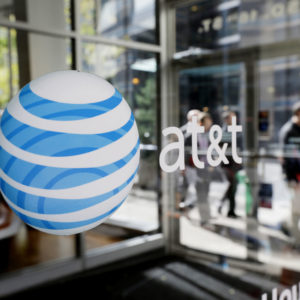AT&T and Time Warner are defending their proposed merger to skeptical lawmakers in Congress, arguing the deal “is about giving consumers what they want,” a line Democrats aren’t buying.
“Together, AT&T and Time Warner will create exciting new ways for consumers to enjoy video anytime, anywhere, and on any device, with unprecedented levels of customization and interactivity,” executives for both companies wrote in a letter to Senate Democrats released Friday.
The letter came in response to another sent by high-ranking Democrats including Sens. Al Franken, Bernie Sanders, Elizabeth Warren, Ed Markey, Patrick Leahy and others. Senators asked both parties to explain how their $85 billion merger would affect Americans after a congressional hearing on the deal in January.
“The merger will allow us to offer customers more attractive bundles of broadband and video services, prodding cable companies and other competitors to respond by improving their own services,” they wrote. “And the merger will further incentivize AT&T and other wireless carriers to deploy lightning-fast 5G technology faster and deeper in their networks.”
During the January hearing, Democrats essentially compelled AT&T CEO Randall Stephenson and Time Warner CEO Jeffrey Bewkes to pledge not to raise service prices, restrict Time Warner content or engage in other anticompetitive practices should the deal go through.
“Of course, the Department of Justice will thoroughly scrutinize this transaction after receiving input from a vast range of market participants, government agencies, and public interest groups,” the letter reads.
The companies asked lawmakers to leave the review to DOJ, since “Congress entrusted the department with broad merger-review authority to protect the public’s interest in competitive markets.”
AT&T and Time Warner reiterated the merger is a vertical one and won’t impact market competition, but lawmakers and regulators aren’t sure. The merger is the second of AT&T’s aimed at securing video content to distribute in unlimited streams to its wireless subscribers. It launched the first last year dubbed DirecTV Now, which starts at $35 a month and lets AT&T customers stream unlimited DirecTV content, while still counting competitors Netflix, Hulu, and others against customer data caps.
The practice, known as zero-rating, was flagged by the last Democratically-led FCC as a violation of net neutrality. Many of the senators addressed in the letter agreed with that assessment, which was later nullified by the new Republican chairman of the FCC.
Both companies reiterated their intent to structure the merger in such a way that they’ll bypass FCC review by not transferring FCC licenses. The FCC has a higher standard for approving mergers based on the merits of their benefits to consumers.
“That’s why it was particularly troubling when AT&T and Time Warner signaled that they were structuring their mega-merger to circumvent FCC review and avoid proving that the deal will benefit consumers and promote competition,” Franken said in a Facebook response to the letter Friday.
The Minnesota senator and former comedian said the letter did little to dissuade his concerns “and essentially asks American consumers to trust that the combined company won’t engage in anticompetitive behavior, raise prices, violate the principles of net neutrality, or decrease access to diverse voices.”
“But we’ve seen some of these behaviors before — both as a result of past mega-mergers and straight from AT&T itself,” Franken said, adding to his concern the deal “will lead to higher prices, fewer choices, and even worse service for you.”
AT&T was fined $100 million by the both the FCC and Federal Trade Commission in 2015 for throttling the downloads of subscribers with unlimited data plans and not fully disclosing the details of those plans.
On the competition side, Netflix has indicated it has no qualms with the merger. Where the Department of Justice will land is unclear. President Donald Trump explicitly said he opposed the deal while on the campaign trial last year because it would concentrate “too much power in the hands of too few.”
His son-in-law and senior adviser Jared Kushner met with Time Warner, the parent company of CNN, earlier this month and discussed the network’s coverage of the president, which Trump described as “hateful” during a press conference last week.

